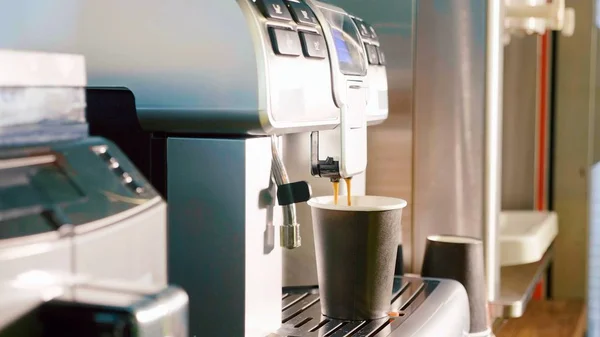Are hospital coffee machines responsible for spreading pathogens? No, recent research indicates that hospital coffee machines are unlikely to be significant contributors to the spread of superbugs. A study published in The BMJ in December 2023 assessed the microbial population in healthcare-associated coffee machines and found several key points:
- Hospital machines had more bacteria than home machines but mostly harmless: While hospital coffee machines harbored about three times more bacteria than home machines, most were commensals, meaning they exist on human skin or gut without causing harm.
- Few medically relevant pathogens: Only a few types of medically relevant pathogens were identified, and none were resistant to antibiotics. These were mainly found on drip trays, outlets, and water tank handles, highlighting the importance of hand hygiene for users.
- No evidence of superbug spread: Notably, the study found no evidence of the “ESKAPE” pathogens, a group of highly resistant and dangerous bacteria prioritized by the World Health Organization.
Therefore, while maintaining general hygienic practices around coffee machines is important, this research suggests that a general ban on them in healthcare settings is not necessary. However, further research may be needed to explore potentially risky practices, like touching less-obvious parts of the machines.
About The Study
This study comes as a relief, considering the ongoing battle against hospital-acquired infections (HAIs) and the scrutiny placed on all sorts of potential culprits, from doctors’ ties to Bibles. However, despite being frequently touched by many hands, hospital coffee machines had never been thoroughly investigated as a possible source of bacterial threats.
Researchers in Germany decided to fill this gap by studying the microbial communities residing in healthcare-associated coffee machines. Their focus was on the WHO’s “ESKAPE” pathogens, notorious for their antibiotic resistance and ability to cause deadly bloodstream and catheter infections.
From October to December 2022, they swabbed 25 coffee machines across a hospital department, a microbiology institute, and staff homes. These included automatic, capsule, and espresso machines. Importantly, none were specially cleaned before testing, and no ongoing outbreaks were occurring at the time.
Five key areas were swabbed on each machine: drip tray, outlet, buttons, water tank handle, and water tank interior. Bacteria were then identified and categorized as “medically relevant” (potential threats) or “atypical pathogens” (mostly harmless commensals). Gram staining further distinguished them based on cell wall features, with Gram-negative bacteria having added antibiotic resistance potential.
Unsurprisingly, some microbial growth was found on all machines, with hospital machines harboring about three times more bacteria than those at home. However, the good news is that most were harmless commensals. Only a few medically relevant pathogens were identified, and none were antibiotic-resistant.
Interestingly, Gram-negative pathogens were mainly found on drip trays, outlets, and water tank handles, highlighting the importance of hand hygiene for users. Even Staphylococcus aureus, a potentially dangerous Gram-positive bacteria, was only found twice – once on a home machine button and once on a hospital water tank interior. This suggests that users may touch even unexpected parts of the machines.
While extensive cleaning measures are now recommended following the study, the researchers conclude that a general ban on hospital coffee machines is unnecessary. Their sights are now set on other potential tea-related havens for bacteria in “tea drinking nations.” The question remains: are kettles, teapots, and hot water spouts the next hidden battlegrounds in the fight against HAIs? And can their hot liquids provide adequate protection against these microscopic foes?
This study offers valuable reassurance to healthcare workers and coffee enthusiasts alike. While vigilance and hygiene practices remain crucial, our daily caffeine fix seems safe from being labeled a major infection risk. And that’s something to brew about.
ALSO READ:
- Cola Cure for Food Impaction: New Study Examines Potential of a Holiday Remedy
- Cervical cancer screening for HIV-positive women: What’s the best approach? Study reveals
- Older Patients with Mantle Cell Lymphoma Set For Breakthrough With New Combination Treatment








